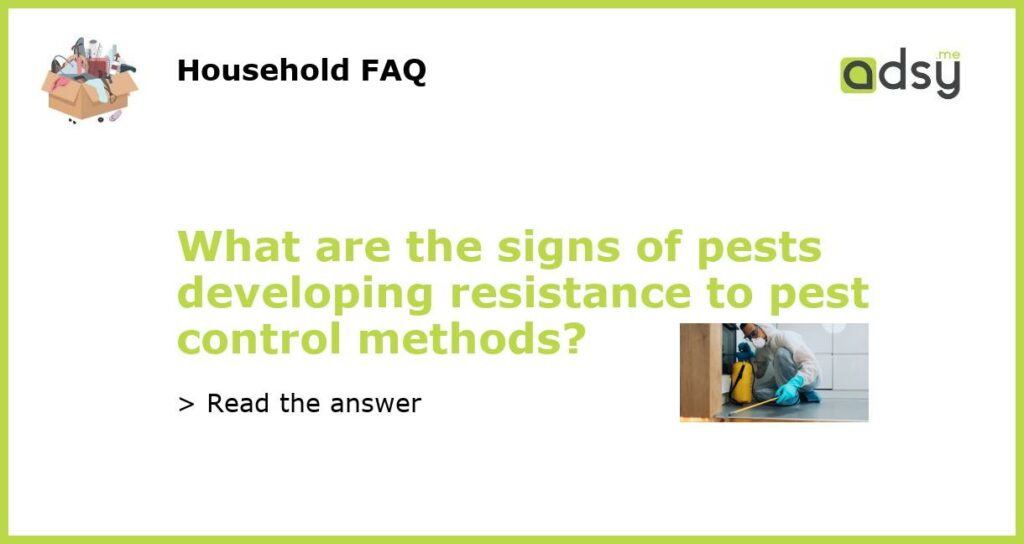Signs of pests developing resistance to pest control methods
Pests are a common problem for homeowners and businesses alike. They can cause damage to property, spread diseases, and be a general nuisance. Pest control methods are used to keep these pests at bay, but what happens when they become resistant to these methods? Here are some signs to look out for when it comes to pests developing resistance to pest control methods.
Increased population
One of the first signs that pests may be developing resistance to pest control methods is an increase in their population. If you notice that the number of pests in your home or business is not decreasing despite your efforts to control them, it could be a sign that they have developed resistance. Resistant pests are able to survive and reproduce even when exposed to the usual pest control methods.
Decreased effectiveness of pest control products
Another sign of pests developing resistance is a decreased effectiveness of pest control products. If the product you are using to control pests is no longer working as effectively as it used to, it could be a sign that the pests have developed resistance. This could be due to a variety of factors, such as changes in the pest’s biology or genetic makeup.
Changes in behavior
Pests that have developed resistance may also exhibit changes in their behavior. They may become less susceptible to certain pest control methods and find ways to avoid or survive exposure to these methods. For example, insects may develop behavioral changes that allow them to avoid contact with insecticides, while rodents may develop avoidance behavior or become less attracted to bait traps.
Repeated infestations
If you are experiencing repeated infestations of pests despite your efforts to control them, it could be a sign of resistance. Pests that have developed resistance are able to survive and reproduce even after being exposed to pest control methods, leading to recurring infestations. This can be frustrating for homeowners and business owners who are trying to keep their property pest-free.
Lack of response to different control methods
Lastly, if pests are not responding to different control methods, it may be an indication of resistance. When pests develop resistance, they are less likely to be affected by various pest control products and methods. This can make it difficult to find an effective solution to the pest problem.
In conclusion, pests developing resistance to pest control methods can be a challenging issue to deal with. Increased population, decreased effectiveness of pest control products, changes in behavior, repeated infestations, and lack of response to different control methods are all signs that pests may have developed resistance. If you are experiencing these signs, it may be necessary to seek professional help from pest control experts who can provide guidance and effective solutions to manage the resistant pests.

